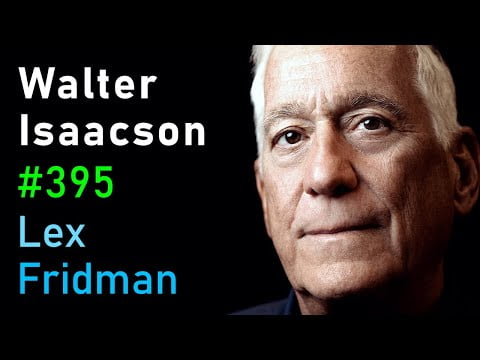Podcast Summary
The podcast features a conversation with Walter Isaacson, a renowned biography writer, discussing his books on influential figures such as Albert Einstein, Steve Jobs, Leonardo da Vinci, Jennifer Doudna, Benjamin Franklin, Henry Kissinger, and Elon Musk. Isaacson shares insights into the lives of these individuals, their struggles, and their achievements. The podcast also delves into the role of difficult childhoods in shaping successful individuals, the importance of harnessing one’s demons, and the impact of books in inspiring and motivating individuals.
Key Takeaways
Understanding Great Minds
- Role of Difficult Childhood: Isaacson discusses the role of a difficult childhood in the lives of great minds. He notes that while it is not a requirement for success, many driven individuals harness the demons of their childhood to fuel their ambitions.
- Impact of Childhood Experiences: The impact of Elon Musk’s difficult childhood on his personality is explored, with references to his demons, dark moments, and dramatic tendencies.
- Importance of Self-Knowledge: Isaacson highlights the importance of harnessing one’s demons and understanding one’s strengths and weaknesses, with examples from figures like Leonardo da Vinci and Elon Musk.
Elon Musk’s Drive and Missions
- Addiction to Intensity: Elon Musk’s superpower is described as his addiction to intensity and his drive to accomplish big missions for humanity.
- Musk’s Missions: Musk’s three big missions are mentioned: making humans a space-faring civilization, bringing sustainable energy to the world, and ensuring the safety of artificial intelligence.
- Channeling Pain into Achievements: The speaker discusses how young people who have struggled with various challenges can find inspiration in walking alongside their demons and channeling their pain into achieving great things.
Albert Einstein’s Struggles and Success
- Early Rejections: The podcast discusses the early rejections and struggles faced by Albert Einstein in his education and career, leading to his eventual success.
- Thinking Outside the Box: The podcast highlights Elon Musk’s ability to visualize and think outside the box, similar to Einstein, which helps him come up with innovative solutions.
- End-to-End Control: Musk’s end-to-end control over Tesla’s manufacturing process allows for innovation and ensures a high level of quality.
Elon Musk’s Approach to Innovation
- Full Self-Driving Car: Elon Musk has been obsessed with building a full self-driving car without a steering wheel or pedals, focusing on creating a next-generation car that can be summoned and doesn’t require human driving.
- Artificial Intelligence and Machine Learning: Musk has shifted to using artificial intelligence and machine learning, analyzing billions of frames from Tesla drivers to learn from their actions and make the full self-driving system more advanced.
- Confident Risk-Takers: The guest mentions that Musk and others at Tesla are confident risk-takers, willing to explore new ideas and adjust their plans as they encounter challenges or discover better approaches.
Elon Musk’s Leadership Style
- Finding the Right People: Elon Musk has a talent for finding the right people and promoting them within his companies.
- Trustworthiness and Loyalty: Musk values trustworthiness and loyalty in his team members and has implemented measures to identify those who are deeply committed and loyal.
- Intense Focus: Musk’s approach to time management involves focusing intensely on one task at a time and switching between different projects throughout the day.
Sentiment Analysis
- Bullish: The podcast presents a bullish sentiment towards Elon Musk and his leadership style. His ability to harness his demons, his intense focus, and his drive to accomplish big missions for humanity are highlighted as key factors contributing to his success.
- Neutral: The podcast maintains a neutral sentiment towards the role of difficult childhoods in shaping successful individuals. While it acknowledges that many driven individuals harness the demons of their childhood to fuel their ambitions, it also notes that a difficult childhood is not a requirement for success.
- Bearish: There is a bearish sentiment towards the lack of risk-taking and innovation in other companies, with the guest suggesting that there are more regulators and lawyers discouraging innovation than there are risk-takers.











